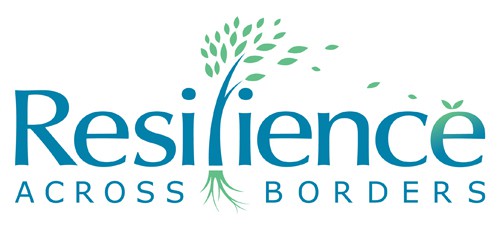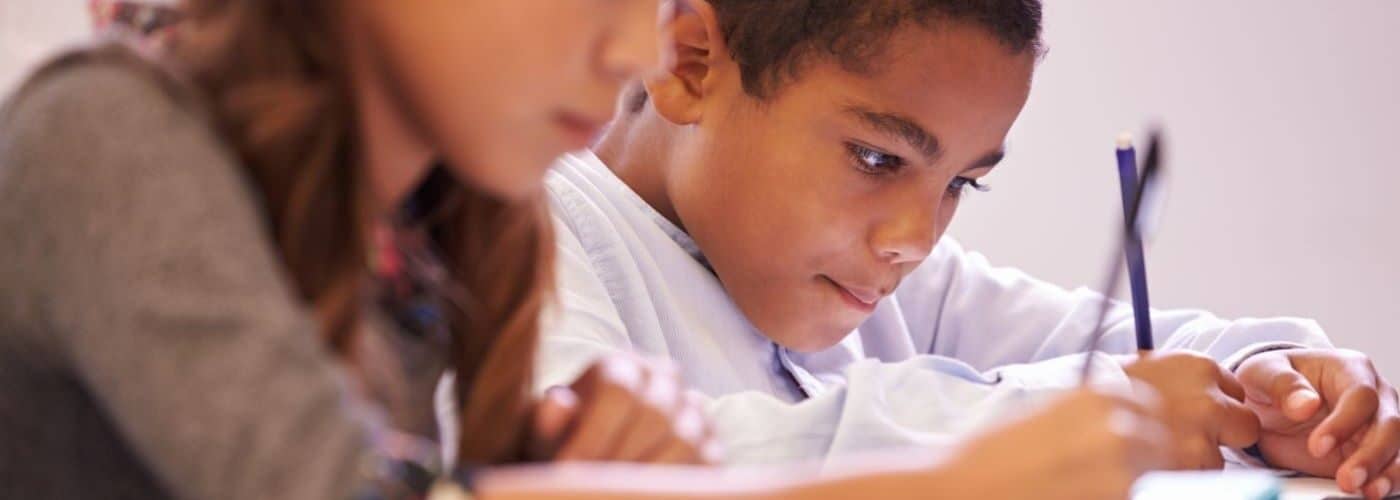Resilience Builder Program-Universal™
After a successful pilot, Resilience Across Borders launched our new Resilience Builder Program-Universal™ (RBP-U) this year at three schools that primarily serve students from economically marginalized communities. RAB trained 11 teachers to deliver the RBP-U curriculum to their entire class, helping 200 students build resilience! The RBP-U teaches children important skills (e.g., social skills, leadership skills, coping strategies for difficult emotions, proactive problem-solving, etc.) that research shows increase students’ resilience and academic engagement. The RBP-U also aims to improve youth’s understanding of and normalize conversations about mental health.
Our new curriculum is built on the successes of the Resilience Builder Program® and adapts its evidence-based approach to the classroom environment. It helps children develop the same protective factors, such as self-regulation and the use of coping strategies. We also provide resources for parents on building resilience skills at home. The lessons themselves are segmented into shorter activities to facilitate its implementation alongside the standard academic curriculum.
The RBP-U includes 12 topics, each consisting of three 15-minute “mini-lessons” implemented by teachers to their entire class. Each mini-lesson teaches students practical skills in engaging ways. We provide teachers with online access to lesson plans, animated videos that introduce key concepts, and other materials (e.g., teacher scripts, student handouts, group activities, relaxation exercises, classroom posters, etc.) as well as monthly support sessions with our trained mental health providers so they can easily and effectively administer the intervention. All materials were developed by mental health experts in consultation with local teachers who completed surveys about which content and format would be most useful in their classrooms. We also provide teachers with classroom items that are commonly used in our lessons, such as chart paper, markers, and sticky notes.
Currently, teachers implementing the RBP-U provide feedback through surveys and consultation groups about the program training, content, and consultative support. Using this feedback, RAB will assess the RBP-U’s feasibility (i.e., ease of administering the program) and acceptability (i.e., appropriateness for students’ and teachers’ needs). Once we establish feasibility and acceptability and update the program based on teachers’ feedback, RAB will conduct research on RBP-U’s effectiveness in promoting positive mental health and academic outcomes among underserved youth. Beginning next school year, we will begin collecting detailed questionnaires from teachers about each student before and after administering the RBP-U to establish the program’s effectiveness. The following school year, we will also collect questionnaires from each student before and after the RBP-U.
Sample Video – Coping with Stress & Anxiety
An example of a video that introduces the topic at the beginning of a lesson. Teachers then lead students in lesson activities (discussion, role-playing, etc.) that help them understand and practice that resilience skill. (Most videos are 2-3min long.)
What sets us apart?
The RBP-U is adapted from a well-established intervention backed by years of research findings. In addition to its unique focus on building resilience skills in youth, the RBP-U differs from other school-based social-emotional learning programs in its primary goal of reducing racial/ethnic and socioeconomic disparities in access to mental health interventions. Resilience Across Borders also highly values its partnerships with schools and other stakeholders. We prioritize consulting with teachers, counselors, principals, and other community stakeholders in order to incorporate feedback into the development of the RBP-U as an evolving program to fit the needs of the community. In this way, the program and the schools with which we collaborate evolve together. Finally, the RBP-U is distinct in its emphasis on caregiver involvement, which research shows benefits youth’s social-emotional learning. We obtain informed consent from caregivers before the program begins and we developed family newsletters in both English and Spanish for teachers to send home after each topic. These provide families with concrete ways to help their children practice resilience skills.
Listen to our students in this episode of NPR’s All Things Considered
Resilience Builder Program®
The Resilience Builder Program® was developed by our Founder and President of the Board, Dr. Mary Alvord, and colleagues in the 1990s. It is an evidence-based group therapy program used in private practice and school settings. It is designed to help youth bounce back from the challenges in their lives by increasing confidence, self-esteem, self-control, and the use of coping strategies.
From 2016 to 2020, we trained clinicians and graduate students to deliver the Resilience Builder Program® to small groups of students in Maryland and Washington, DC. For twelve weeks, our clinicians went directly into elementary schools and worked with children who school counselors, teachers, or administrators had identified as needing additional support. Using this approach, we were able to support about 200 children in total.
Group activities help develop the following specific protective factors associated with resilience:
- Proactive orientation toward life
- Self-regulation of attention, emotions, and behavior
- Social connections and attachments
- Achievements and talents
- Community ties
- Proactive parenting
Each session encourages self-awareness, flexible thinking, and social competence. Through discussion, role-play, and other hands-on techniques, group members learn about self-talk, personal space awareness, problem solving, anger/anxiety management, friendship skills, and other topics essential to well-being and social success.
Relaxation techniques including calm breathing, visualization, progressive muscle relaxation, and yoga enhance self-regulation. And at-home practice, community field trips, and a parent involvement component help group members generalize what they learn to the world outside the group.

